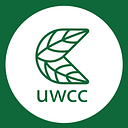Hemp as a sustainable alternative
By Emily Everest
Hemp is a type of Cannabis Sativa. Being from the Cannabis family has given the plant a negative image in the modern world, driving society away from the product being used widespread. People view the plant as its cousin, marijuana, and consider the use of it to be promoting drug culture. In reality, hemp has almost no THC in it and has been farmed for thousands of years by societies across the globe. The American Declaration of Independence was even written on hemp paper!
Hemp is the sustainable solution that has been ignored by society for the past decades. There are so many uses for hemp that are being thrown to the side that could actually change many aspects of current society. Hemp can be used as a building material, clothing, household product ingredients, plastics, health supplements, and so much more. The untapped resources of hemp could change how society functions, for the better of the planet and the humans who use it.
Hemp has a growth cycle of 3–4 months. Ideally, farmers could harvest the hemp four times a year. The fibres can be woven into clothing that is more durable, stronger and incredibly soft. The material is also hypoallergenic for those with allergies needing an alternative to itchy cotton. Hemp is an amazing alternative to cotton because of the water intake the plant needs to grow, the growing period, and the quality. Hemp has historically been used to weave ropes and ship sails. The quality is incredibly strong and can endure harsh weathering for long periods at a time without tearing.
The seeds of the hemp plant can be consumed and have a multitude of health benefits. The seeds contain CBD, proteins, fibres, and other natural vitamins/minerals good for the human body. The seeds can be consumed as they come, or they can be processed into a nutty-flavoured oil or even flour that can be used in cooking. Hempseed milk is an alternative to soy milk and is actually easier for the human body to digest. It is created by crushing the raw hemp seeds and mixed with water, an easy option that can be done on your own!
Zero-waste bulk is an outlet close to campus that stock hemp food products such as hemp seeds, hemp soap, etc. There are numerous stores throughout the Waterloo region that stock hemp products such as Goodness me! Natural Food Market, Pfennings Organic & More, and Bulk Barn. These products can also be found and ordered online from various websites.
I have only briefly exposed a portion of the amazing qualities of hemp. There are so many more uses that I encourage more people to explore and transition to. Hemp is the miracle plant the world has been missing out on.
Resources:
Weed Maps. (2020, January 21). The Differences Between Hemp and Marijuana. Retrieved from https://weedmaps.com/learn/the-plant/hemp-vs-marijuana/
McKee Simmons, K. (2017, April 3). Ten Cool Facts About Hemp From the NoCo Expo. Retrieved from https://www.westword.com/marijuana/op-ed-i-oppose-any-ban-on-vape-flavors-11620150
10 things you probably didn’t know about hemp: Thought Clothing. (n.d.). Retrieved February 3, 2020, from https://www.wearethought.com/blog/2015/05/05/10-facts-about-our-hemp-clothing/
The Editors of Encyclopaedia Britannica. (2019, August 6). Hemp. Retrieved from https://www.britannica.com/plant/hemp
